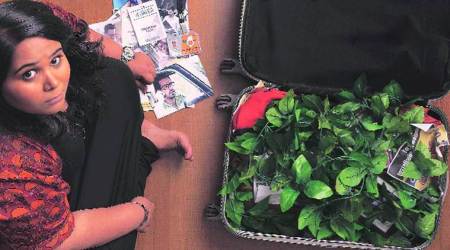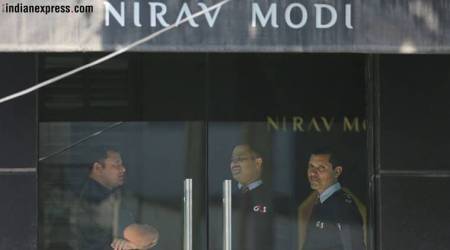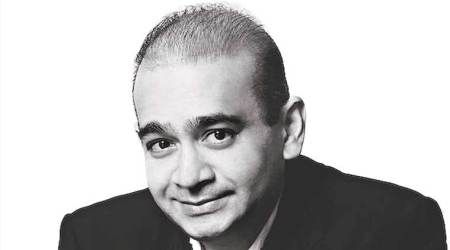 Those were the days: Sarvat Hasin.
Those were the days: Sarvat Hasin.
In issue 19 of the Stockholm Review of Literature, Sarvat Hasin, writes, “Take the myths you know about writing and burn them. The secret no one tells you: it’s like anything else, really. You shove at it till it works. And it doesn’t always work.” The 27 year-old Pakistani writer did make it work in her debut novel, This Wide Night (2016), longlisted for the DSC Prize last year. Set during the 1971 Bangladesh War of Liberation, the book was a loose retelling of Louisa May Alcott’s Little Women. In her new book, You Can’t Go Home Again (Penguin Hamish Hamilton), a series of inter-connected stories set between Karachi and London, Hasin explores what it means to be young in Pakistan today. In this interview, she talks about writing about flawed characters, exploring notions of maleness and her preoccupation with chudails. Edited excerpts:
In You Can’t Go Home Again (YCGHA), most of your characters come from privilege; their concerns are removed from the big picture in the life of a nation. Was that to indicate the urban young’s focus on the minutiae of private lives?
I feel a lot of the stories about Pakistanis abroad are still shaped by the generation above and while those stories remain relevant and interesting, they can’t be the only story we have. Certainly, the people this collection is about occupy a very small part of society — I wouldn’t say that was a deliberate choice but it was something I was very conscious of. I’m not sure any single piece of fiction can encapsulate all of society, particularly one as stratified and complex as Pakistani society. I wanted to write something that was very specific to one generation, one social sphere locked in by this singular time they shared at school. It’s true that the characters in this book are sometimes unaware of their own privilege, but, to me, that’s what makes characters real and interesting: they can be selfish, manipulative and nasty but also incredibly full of fear, love and tenderness.
But can there be a subcontinental novel divorced from its politics?
Everything we create is a result of our circumstances, and, therefore, necessarily political. I’m wary of books that are written to a political agenda. But, I think here in the sub-continent, we are particularly concerned with both the weight of history and the unfolding political scene. Things here often feel uncertain, as if the order of the world is in constant flux.
What about the form — a series of connected stories — appealed to you?
The first story from the book, Dark Room, was the first one I wrote. When it was over, I found myself wondering about those characters — how the rest of their lives would go, if they would ever cross paths again. Novels, for me, require a little bit more structure and planning; a collection such as this one is like wandering around a house, opening doors and seeing what you find. Each story contains secrets that are slowly revealed through the collection — there’s a strangeness to the things that happen here that can leave you wondering if what happened is real or just in the character’s heads. But if the stories link to each other, some of these mysteries become clearer.
In some stories in YCGHA and in This Wide Night (TWN), you have used a male narrative voice. What was the idea behind it?
I didn’t think about it consciously too much in either project. Both books are populated heavily by women, and in TWN, the narrator is as much a storytelling device as he is a character: our view is filtered through him.
With this book, the focus was on making sure that these characters share a history and a similar background but are very different from each other, both in the paths they’ve chosen and the manner in which they react to the world. Perhaps, my main consideration when writing about men in both of these books is to examine how their maleness allows them to make certain choices that women cannot. Both Jimmy from TWN and Karim from YCGHA are able to move through the world with a certain carelessness and confidence that their female counterparts are rarely afforded. But also, the pressure of masculinity, of being a certain kind of patriarchal figure haunts Rehan and prevents him from being vulnerable. Having the double-edged sword of those expectations was important to me.
As a writer and a woman, how do you react to a campaign like #metoo?
I think this feeds into the idea that women’s rights is not a luxury, but a necessity. In South Asia, families are often concerned for their daughters and their safety but seem less concerned with having those conversations with their sons. It feels as if we are always waiting for other things to be settled before women’s rights are developed.
Tell me about the recurring presence of chudails in the book.
I was thinking a lot about the stories we tell each other when we’re children, the specific bravado that goes along with that horror. There is so much richness in the superstitions we learned, how they sat side by side with our scientific and spiritual educations. I liked the idea of seeing where this went as we aged. Specifically to the chudail, jadoo or black magic have always been strange esoteric spaces, often associated with femininity; it is both dismissed and feared. I wanted to look into the way it tangles with society. I described this book’s aspirations as being social satire meets horror — a friend used to call it ‘Gossip Ghoul’.
You have grown up in Karachi and now live in London. How has that shaped your vision of Pakistan?
I can’t pretend to have an objectivity as to how I see Pakistan. There are no rose-tinted glasses but that doesn’t mean I don’t see it through the tangle of my own experiences. It’s a constantly shifting perspective — Pakistan in the news is a sort of fiction to me, not because what gets reported is inaccurate (though it sometimes is) but because it is only a slice of the country. That anyone could know what to expect from only seeing that version of it is incredible to me.
Your first book was longlisted for the DSC Prize, your writing is being compared to that of Kamila Shamsie and Mohsin Hamid. Do you feel any pressure to live up to it?
Writing has been in my life for much longer than being published has. To have people reading my work is an incredible privilege and to have positive comparisons to authors I love even more so. But all that has to stay outside the door when you’re actually doing the work.
Among Pakistani authors, is there a fraternity of sorts among those who write in English?
I think there is a lack of spaces for people who write in English to interact. I’m not just speaking of published authors but aspiring ones also. Certainly, there are literary festivals but not many informal spaces to foster a sense of community between writers.
For all the latest Eye News, download Indian Express App





























